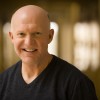In today’s secular culture, it’s easy for believers to feel like outsiders. Dr. Bruce Ashford explains why this is not all together a bad thing.
“Conservative evangelical Christians have seen consistent setbacks for thirty or forty years. Not entirely setbacks, we’ve seen a little bit of progress on pro-life issues, but on the whole, we are seeing slow, incremental losses in religious liberty, human dignity, race relations, gender, sexuality.”
“So we find ourselves in a position of temporary weakness. You’re never in a real position of weakness when Christ is Lord. But I think that’s OK. And it provides us a perfect opportunity for powerful witness.”
While it may seem counter intuitive, Christians can sometimes be most effective for the kingdom of God from positions of weakness in their society. For example, Dr. Ashford points out, we need look no further than the Author of our faith, who came to earth as a servant:
“This is how the Kingdom comes. When Jesus came and proclaimed the Kingdom, He proclaimed as a homeless, itinerant preacher who had no place to lay His head. He was hung naked on a cross, crucified, and buried in the ground–and that’s how victory came.”
“And if you look at church history over the past 2,000 years, many and probably most of the times that Christians have seen great advances, it’s been when we were in a position of weakness.”
Following that historical precedent, and because they know God controls the outcome, Christians can paradoxically be comfortable, even confident, in a position of temporary weakness.
“We can be comfortable in a position of weakness. If we have the courts against us, if we have many or most of the professors at public universities against us, mocking us and belittling us…when these sort of things happen to us, we can just embrace it, because God takes our weakness and He makes it powerful.”
“When (Christ) appeared to His disciples and said, ‘As the Father sent me, so I send you,’ He showed them the holes in His hands and His side. What He was saying is, just as the Father sent me and I had to suffer to get my victory, so I send you and you’re going to have to suffer.”
“So we ought to expect it, not always play the victim. When we embrace it, I think we point people back to Jesus, back to the way of the cross; it keeps us from being arrogant.”
Dr. Ashford says it may be time for American Christians to conduct themselves among the secular culture like missionaries who seek to serve in a foreign setting.
“If I’m a missionary and I go to another people group, I go in as a minority. I have very little social or cultural power whatsoever. I don’t even know the language, so in humility, I go and learn the language and it’s very hard but I learned the language as a way of saying to the people, “I care about you. I respect you. I want to listen to you.”
“I was a missionary for two years, when you enter into conversations with you’re listening. You want to figure out how they think; you want to hear their heart. Then you want to find the best way to interface the gospel with their heart, with their cultural institutions.”
“So if we translate that back to the United States, I don’t think we tend to view ourselves as missionaries. We tend to view ourselves as kings. We want to yell at the people who aren’t doing things right, rebuke them, shout them down. (Instead) we want to listen to people in our society, we want to pay close attention to our cultural institutions, and interface the gospel with humility, rather than with anger and condescension.”
Dr. Bruce Ashford is Provost and Professor of Theology & Culture at Southeastern Baptist Theological Seminary. He’s the author of and
How weakness can strengthen our witness, with Dr. Bruce Ashford





















